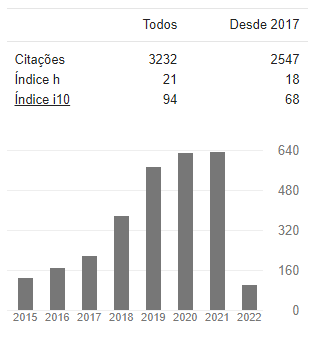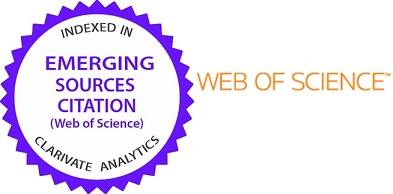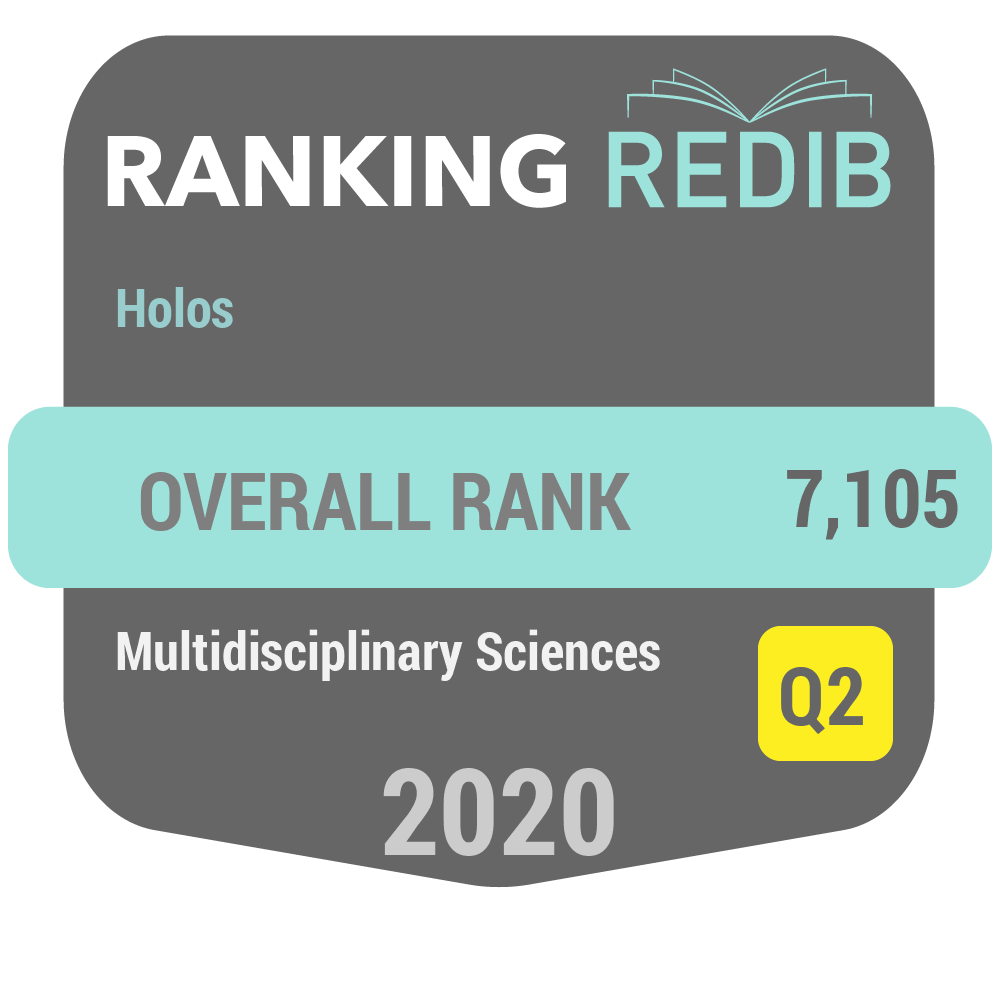TERRITORIAL INTENSIVE PRODUCTS AS PROMOTERS OF REGIONAL TOURISM. THE CASE STUDY OF DOURO SKINCARE
DOI:
https://doi.org/10.15628/holos.2018.5243Palavras-chave:
Female entrepreneurship, TIPs, Tourism, Regional brand, Sustainability.Resumo
The case study explores the growth and regional involvement of Douro SkinCare[1], a company created by women that operates in the field of selective Biological Cosmetics through the creation, development and production of cosmetic lines that are based on emblematic raw materials of the Douro Region, one of the oldest wine-growing areas with more history in the world, located in the north of our country, Portugal. It uses Douro grapes and PORT WINE DNA ™ (Douro Nuclear Aroma), created from the first port wine from entirely organic production to develop cosmetic lines produced with endogenous products. The territorial intensive products (TIP) are associated directly with the region and are intensively endogenous. TIPs are indirectly related with local tourism as a trademark.
This case study uses a qualitative methodology, based on YIN (1998) to select and analyse information collected by the interviewers and other secondary information sources.
This case illustrates how a brand can contribute for regional development and expansion by a small female business. It also highlights the role of the entrepreneurs in introducing modernity, innovation and product diversification to allow such a small firm to reach new markets.
This research could bring new insights and relevant proposals to the relation between TIPs, female entrepreneurship, tourism and regional development.
Additionally, by utilizing grapes and/or wine and other derived products produced from vines grown completely organically in the Douro region in northern Portugal, the firm has contributed significantly to create awareness about the sustainability of this natural resource and the region itself.
[1] http://douroskincare.com/, retrieved on July 28, 2016.
Downloads
Referências
Ambler, T. (1997). HOW MUCH OF BRAND EQUITY IS EXPLAINED BY TRUST?. Management Decision, 35 (4), 283-92.
Asero, V.; Patti, S. (2009). DEVELOPING THE TOURIST MARKET THROUGH THE EXPLOITATION OF THE TYPICAL PRODUCTS. The Annals of Dunarea de Jos, University of Galati, Fascicle I/2, Year XV, 5-14.
Bhat, S.; Reddy, S.K. (1998). SYMBOLIC AND FUNCTIONAL POSITIONING OF BRANDS. Journal of Consumer Marketing, 5(1), 32-43.
Brush, C.G., de Bruin, A., Welter, F. (2009). A GENDER-AWARE FRAMEWORK FOR WOMEN’S ENTREPRENEURSHIP. International Journal of Gender and Entrepreneurship, 1(1), 8–24.
Carvalho, L., Williams, B. (2014). LET THE CORK FLY: CREATIVITY AND INNOVATION IN A FAMILY BUSINESS. International Journal of Entrepreneurship and Innovation, 15(2), 127-134.
Carvalho, L. (2014). FROM WINERY TO RURAL TOURISM EXPERIENCE: A PERFECT MARRIED COUPLE. IX Congresso Internacional sobre Turismo Rural e Desenvolvimento Sustentável (CITURDES), 9-10 setembro, São Paulo, Brasil.
Charters, S., Spielman, N. (2014). CHARACTERISTICS OF STRONG TERRITORIAL BRANDS: THE CASE OF CHAMPAGNE. Journal of Business Research, 67, 1461–1467.
Charters, S.; Mitchell, R.; Menival, D. (2011). THE TERRITORIAL BRAND IN WINE. 6th AWBR International Conference, 9-10 June, Bordeaux Management School, France.
De Bruin, A.; Brush, C.G.; Welter, F. (2006). INTRODUCTION TO THE SPECIAL ISSUE: TOWARDS BUILDING CUMULATIVE KNOWLEDGE ON WOMEN’S ENTREPRENEURSHIP. Entrepreneurship Theory and Practice, 3(5), 85–593.
De Chernatony, L. (1993). CATEGORIZING BRANDS: EVOLUTIONARY PROCESSES UNDERPINNED BY TWO KEY DIMENSIONS. Journal of Marketing Management, 9(2), 173-88.
De Chernatony, L.; MacDonald, M. (2003). CREATING POWERFUL BRANDS. Oxford, Butterworth Heinemann.
De Vette, C. (2011). THE GROWING IMPORTANCE OF WOMEN: FEMALE ENTREPRENEURSHIP. Master Thesis. Rotterdam, Erasmus Universiteit Rotterdam.
Dodds, W.B.; Monroe, K.B.; Grewal, D. (1991). EFFECTS OF PRICE, BRAND, AND STORE INFORMATION ON BUYERS’ PRODUCT EVALUATIONS. Journal of Marketing Research, 28, August, 307-19.
European Commission (2014). STATISTICAL DATA ON WOMEN ENTREPRENEURS IN EUROPE, Brussels.
European Commission (2013). EUROPEAN NETWORK TO PROMOTE WOMEN’S ENTREPRENEURSHIP - WES REPORT 2012. Office for Official Publications of the European Union, Luxembourg.
Eisenhardt, K. (1989). BUILDING THEORIES FROM CASE STUDY RESEARCH. The Academy of Management Review, 14(4), 532-550.
Grabowski, G., & Kuenzer, A. (2016). A PRODUÇÃO DO CONHECIMENTO NO CAMPO DA EDUCAÇÃO PROFISSIONAL NO REGIME DE ACUMULAÇÃO FLEXÍVEL. HOLOS, 6, 22-32. doi:https://doi.org/10.15628/holos.2016.4983
Hughes, K.; Jennings, J.; Brush, C., Carter, S.; Welter, F. (2012). EXTENDING WOMEN’S ENTREPRENEURSHIP RESEARCH IN NEW DIRECTIONS. Entrepreneurship Theory and Practice, 36, 429-442.
Hughes, K.D.; Jennings, J.E. (2012). GLOBAL WOMEN’S ENTREPRENEURSHIP RESEARCH: DIVERSE SETTINGS, QUESTIONS AND APPROACHES. Cheltenham/Northampton, U.K., Edward Elgar.
IFDEP - INSTITUTO PARA O FOMENTO E DESENVOLVIMENTO DO EMPREENDEDORISMO EM PORTUGAL (2014). EMPREENDEDORISMO FEMININO, UM OLHAR SOBRE PORTUGAL. IFDEP, Portugal.
Kelley, D. J.; Brush, C. G.; Greene, P. G.; Litovsky, Y. (2013). GLOBAL ENTREPRENEURSHIP MONITOR (GEM) 2012 WOMEN’S REPORT. London, U.K., Global Entrepreneurship Research Association (GERA).
Kotler, P.; Chandler, P. C. et al. (1994). MARKETING. Sydney, Prentice Hall.
Long, M.M.; Schiffman, L.G. (2000). CONSUMPTION VALUES AND RELATIONSHIPS: SEGMENTING THE MARKET FOR FREQUENCY PROGRAM. Journal of Consumer Marketing, 17(3), 214-32.
McNamara, C. (1999). GENERAL GUIDELINES FOR CONDUCTING INTERVIEWS, Minnesota.
Ohe, Y.; Kurihara, S. (2013). EVALUATING THE COMPLEMENTARY RELATIONSHIP BETWEEN LOCAL BRAND FARM PRODUCTS AND RURAL TOURISM: EVIDENCE FROM JAPAN. Tourism Management, 35, 278-283.
Papadopoulos, N., Heslop, L. (2002). COUNTRY EQUITY AND COUNTRY BRANDING: PROBLEMS AND PROSPECTS. Journal of Product & Brand Management, 9(4-5), 294-314.
Perrouty, J. P.; F. D’Hauteville et al. (2006). THE INFLUENCE OF WINE ATTRIBUTES ON REGION OF ORIGIN EQUITY: AN ANALYSIS OF THE MODERATING EFFECT OF CONSUMER’S PERCEIVED EXPERTISE. Agribusiness, 22(3), 323-341.
Sheth, J. N.; B. I. Newman, Gross, B.L. (1991). WHY WE BUY WHAT WE BUY: A THEORY OF CONSUMPTION VALUES. Journal of Business Research, 22, 159-175.
Van Ittersum, K.; M. J. Candel, et al. (2003). THE INFLUENCE OF THE IMAGE OF A PRODUCT’S REGION OF ORIGIN ON PRODUCT EVALUATION. Journal of Business Research, 56, 215-226.
Yin, R. (2004). CASE STUDY METHODS, COSMOS Corporation, Revised draft, January 20, 2004 available on http://www.cosmoscorp.com/docs/aeradraft.pdf.
Zeithhaml, V.A. (1998). CONSUMER PERCEPTIONS OF PRICE, QUALITY AND VALUE: MEANS-END MODEL AND SYNTHESIS OF EVIDENCE. Journal of Marketing, 52, July, 2-22.









































